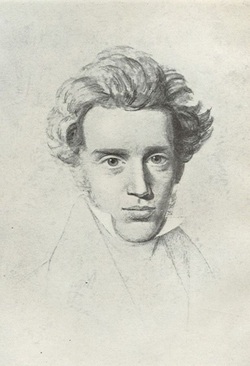
'The position to which the writer has finally come with regard to Kierkegaard’s thought is quite critical. The writer holds that Kierkegaard by conceiving faith in the framework of his philosophy of existence, imposed on faith an antithesis, which was born out of his concept of existence, but which distorts the nature of Revelation and of faith. According to the writer, Kierkegaard’s basic weakness is that his life and thought did not get beyond the antithesis with which it started.
However, having stated this criticism, the writer wants to acknowledge his great debt to Kierkegaard. One cannot study this great master of dialectics without undergoing his influence and without learning many things from him. Kierkegaard’s profound and revealing analysis of human existence, his exploration of the dread and despair of the soul, which must be overcome in faith, and his attempt to reach a position beyond immanence are of great significance for anyone who desires to understand the Christian faith and his own relation to it.
The uniqueness of Kierkegaard’s contribution lies where also his fundamental defect lies: he has given us a revealing analysis of human existence, but he remains caught in the dialectic of the religion of natural man.'
Excerpt from the Preface
This link points to a downloadable copy of the complete dissertation on Academia.edu.
However, having stated this criticism, the writer wants to acknowledge his great debt to Kierkegaard. One cannot study this great master of dialectics without undergoing his influence and without learning many things from him. Kierkegaard’s profound and revealing analysis of human existence, his exploration of the dread and despair of the soul, which must be overcome in faith, and his attempt to reach a position beyond immanence are of great significance for anyone who desires to understand the Christian faith and his own relation to it.
The uniqueness of Kierkegaard’s contribution lies where also his fundamental defect lies: he has given us a revealing analysis of human existence, but he remains caught in the dialectic of the religion of natural man.'
Excerpt from the Preface
This link points to a downloadable copy of the complete dissertation on Academia.edu.
